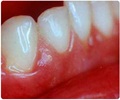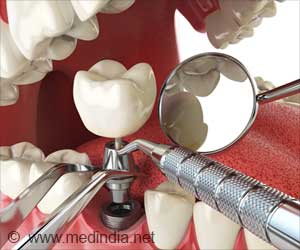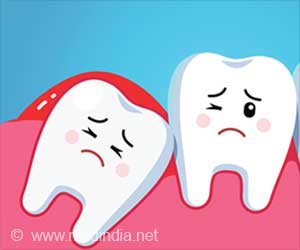Signs of gum disease reduced in patients who adopted a simple psychological intervention, aided by the use of an online risk assessment tool.

‘Good daily oral care is a core element of achieving and maintaining good oral health, and this may have an impact on other aspects of health as well.’





The study found that over 12 weeks: Dental plaque reduced significantly in the two groups with whom risk was communicated, but not in the "treatment as usual" group.
The percentage of areas that bled on examination (gum inflammation) reduced in all groups, but the effect was more pronounced in the groups that received the psychological intervention.
Frequency of interdental cleaning improved only in the intervention groups
Lead author Dr. Koula Asimakopoulou, Reader in Health Psychology at King's College London said: "Our study shows that by adopting a simple psychological intervention, aided by the use of an online risk assessment tool, we can significantly improve measurable clinical outcomes and reduce initial signs of gum disease in patients seen routinely in General Dental Practice." Dr Matthew Nolan, the dental practitioner who delivered the intervention noted: "Shaping how health information is presented to our patients appears to influence their subsequent behaviour. Patients are naturally concerned about their risk of periodontal disease; we have found that coupling their concern with a structured discussion of coping strategies and simple behaviour change techniques, may be a useful driving force in improving health outcomes within a routine dental consultation."
Advertisement
Advertisement
Source-Eurekalert















